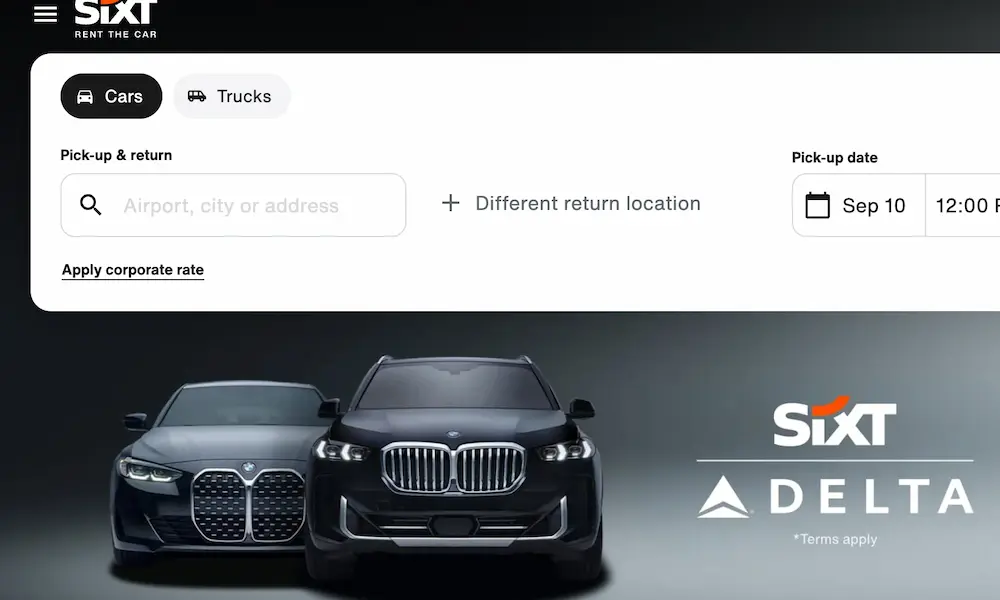Planning a trip and need wheels to get around? You’re probably wondering if you should go with a traditional rental car or try Turo. Turo often offers more affordable rates and the chance to pick exactly the car you want. If high rental prices and limited choices have been frustrating you, this article might just solve your problem. Read on to find out which option best fits your needs.
Key Differences Between Turo and Rental Cars
When deciding between Turo and traditional car rental companies, several factors such as convenience, insurance options, pricing, and car selection can influence your choice.
Convenience and Pickup Options
Turo offers a more flexible experience compared to rental car companies. With Turo, you can often arrange to have the car delivered to your location or meet at a convenient spot. This can save you a trip to a rental office.
Rental car companies usually require you to pick up and return the car at specific locations, which can be less convenient if they are far from where you are. Additionally, Turo provides a more personalized experience, allowing you to connect directly with the car owner for any specific needs.
Insurance and Protection Policies
Insurance and protection policies vary significantly between Turo and rental car companies. Turo offers different levels of protection plans that you can choose from, ranging from basic to premium. These plans can cover damages, theft, and liability.
In contrast, traditional car rental companies usually offer standard insurance options, including collision damage waivers and personal accident insurance. It’s important to read the fine print and understand what each plan covers, as opting for higher coverage can significantly increase your rental cost.
Pricing and Additional Fees
One of the major differences between Turo and rental car companies is pricing. Turo often provides more competitive rates, especially for long-term rentals. You can also find discounts for early bookings. Be aware of the trip fee, which can add to the total cost.
Rental car companies typically have more consistent pricing, but their rates can be higher during peak times. They may also include additional fees such as airport surcharges, young driver fees, and insurance add-ons, which can increase your total cost.
Car Availability and Selection
Turo stands out by allowing you to choose the exact car you want to rent. This can range from economy cars to luxury vehicles, and even unique models you won’t find at rental companies. You get to see the actual car’s photos and descriptions before booking.
Rental car companies generally categorize cars into types (economy, compact, SUV, etc.) rather than specific models. While they offer a wide range, you may not have as much control over the exact car you’ll get. This can be a downside if you are looking for something particular.
Pros and Cons of Using Turo
Using Turo comes with several benefits, such as flexibility and potentially better prices. However, there are some downsides, including the condition of the cars and possible inconvenience.
Advantages of Turo Rentals
One major benefit of Turo is flexibility. You can choose from a variety of cars, ranging from budget options to luxury models, depending on your needs and preferences. This makes it easier to find a car that fits your trip.
Lower prices are another plus. Renting through Turo can sometimes be cheaper than traditional car rental companies. This is especially true if you’re looking for a specific type of car or need it for a short period.
Hosts often pay close attention to cleanliness, ensuring that the car is in good condition upon delivery. This often means you’ll get a well-maintained vehicle.
Lastly, Turo’s app makes the booking process straightforward. You can quickly view available cars, read reviews, and book without the usual paperwork involved in traditional rentals.
Potential Downsides of Turo
One drawback is the varying car condition. Unlike big rental companies, Turo cars may not have consistent maintenance standards. Some cars could be older or have more wear and tear.
Inconvenience is another issue. Meeting a host to pick up or drop off the car can sometimes be less convenient than simply picking up a car from a lot. You might also have to coordinate schedules, which can be tricky.
Insurance can also be a concern. While Turo offers multiple insurance options, they can be more expensive than what traditional rental companies provide. You may need to look closely at what each plan covers.
Lastly, communication with hosts can sometimes pose problems. If a host is unresponsive or has last-minute changes, it can disrupt your travel plans.
Pros and Cons of Traditional Rental Cars
Traditional rental cars offer many benefits, such as a wide selection of cars and strong customer service. There are also some drawbacks, like limited mileage and higher costs for certain services.
Benefits of Rental Cars
One big advantage of using traditional rental car companies is their consistent customer service. Major rental companies usually have 24/7 support and roadside assistance, making it easy to get help if needed. This can be a relief if you encounter problems on your trip.
Another benefit is the broad selection of vehicles. From economy cars to pickup trucks, you can find almost any type of vehicle to match your needs. Whether you need a small car for city driving or a larger vehicle for moving, traditional rental companies usually have what you need.
One-way rentals are another useful feature. Many traditional companies allow you to pick up a car in one location and drop it off in another, which is great for road trips or moving to a new city. Though the cost can vary, this option adds flexibility to your plans.
Traditional rentals often include unlimited mileage options, giving you the freedom to drive as far as you want without worrying about extra charges. This is especially beneficial for long-distance travel.
Limitations of Car Rentals
Despite the advantages, there are also some downsides to traditional car rentals. One of the biggest cons is the higher prices. Rental car prices can be steep, especially during peak travel times or in popular destinations. Additionally, there may be a lot of hidden fees, such as charges for insurance, additional drivers, and fuel.
Another limitation is the limited mileage for some rental agreements. Some companies place a cap on how many miles you can drive before incurring extra fees. This can be a hassle if you plan to cover a lot of ground.
The process of renting a car can also be time-consuming. You often need to wait in line at the counter, fill out paperwork, and go through various checks before you can finally get the keys. This setup can be inconvenient compared to more straightforward options like car-sharing services.
Finally, availability can sometimes be an issue. During busy seasons or in remote locations, finding the right car might be challenging, forcing you to either wait longer or settle for a vehicle that doesn’t fully meet your needs.
Cost Analysis
When comparing Turo with traditional car rental companies, it’s essential to consider the various costs involved, including the pricing structure, rental prices, and additional fees that may apply.
Turo Pricing Structure
Turo’s pricing structure can vary significantly based on the make and model of the car, your location, and the duration of the rental. Rental prices on Turo are set by the individual car owners, which can lead to a broad range of daily rates.
You might find a budget-friendly option or splurge on a luxury vehicle. Additionally, Turo often has a trip fee, which is a percentage of the rental price. Damage coverage is optional but recommended to protect yourself against potential mishaps.
Rental Car Price Comparison
Traditional rental car companies typically offer consistent pricing, but these rates have surged in recent years. According to recent data, it’s common for car rental prices to approach $100 per day, especially in peak seasons or busy locations.
Large rental companies like Hertz and Enterprise have standardized pricing which can help ensure you know what you’re getting. You might pay more during holidays or in popular destinations, but the price transparency with traditional rental companies is usually clearer.
Evaluating Additional Costs
Both Turo and traditional rental companies have additional costs you need to be aware of. With Turo, you might encounter extra fees for things like insurance, underage drivers, or extended miles.
Traditional rental companies also have their own set of fees. Extra costs might include insurance coverage, fuel charges, and fees for additional drivers. Be sure to read the fine print to understand what’s included in your rental agreement to avoid unexpected expenses.
Comparing the two, make sure to account for all potential charges when budgeting for your trip.
Insurance and Protection Plans
Understanding insurance and protection options is crucial when choosing between Turo and traditional rental cars. Here, we break down Turo’s insurance plans, traditional rental car insurance, and tips on selecting the best coverage for your needs.
Turo’s Insurance Options
Turo offers a range of protection plans for both hosts and renters. For hosts, there are five levels of coverage, each with different earning rates and deductibles.
For example, the 60 plan allows you to earn 60% of the trip price with no deductible, while the 75 plan offers 75% with a $250 deductible.
Renters can choose from three primary protection plans—Premier, Standard, and Minimum—each providing varying degrees of coverage for third-party liability, physical damage, and even roadside assistance.
Choosing a plan depends on your needs, but it’s important to know that declining Turo’s protection limits your earning potential to 92.5% of the trip price when someone rents your car.
Rental Car Insurance Coverage
Traditional rental car companies typically offer a variety of insurance options. These include Collision Damage Waiver (CDW), Liability Insurance Supplement (LIS), and Personal Accident Insurance (PAI). CDW covers damage to the rental vehicle, while LIS provides protection against third-party claims. PAI covers medical expenses for you and passengers in case of an accident.
Some rental companies also offer additional options such as Personal Effects Coverage (PEC), which protects your personal belongings. It’s important to check if your own auto insurance or credit card benefits extend to rental cars, as this can help you save on redundant coverage.
Choosing the Right Protection
Deciding on the best protection plan depends on various factors. If you’re renting a vehicle, consider the value of the car and your current insurance. If the rental is more expensive than your personal car, it may be wise to opt for additional coverage.
For Turo rentals, assess whether their protection plans align with your needs. Hosts should weigh the deductible amount against the earning rate. Renters should consider the level of coverage that makes them feel secure without overspending.
Always read the fine print of any insurance policy to understand the deductibles, exclusions, and coverage limits. Making an informed decision can save you money and provide peace of mind while driving.
User Experience and Reviews
When deciding between Turo and traditional car rental services, it’s important to consider what other users have experienced with each option. You’ll get insights into customer reviews, how each platform handles damages, and what to expect when returning the car.
Customer Reviews on Turo
Turo’s users often emphasize the personalized nature of the service. Guests frequently mention appreciating seeing photos and details of the exact car they are renting. This adds a sense of trust and transparency.
Many reviews praise the convenience of Turo’s app, noting that communication with hosts is usually quick and straightforward. Users often say that the rental process feels more flexible compared to traditional rental companies.
There are negative reviews, particularly related to the condition of rented cars and unexpected cancellations by hosts. These issues highlight the variability in individual experiences with Turo.
Feedback on Car Rental Services
Traditional car rental services like Hertz or Enterprise are often noted for their consistency and reliability. Customers appreciate the professional service and the wide selection of cars available at various locations.
Several reviews highlight the ease of picking up and returning vehicles, thanks to established procedures. The 24/7 customer service that many rental companies offer can be an added advantage if any issues arise during the rental period.
However, some users report frustrations with long waiting times and hidden fees that can make the final cost higher than initially expected. There’s also less flexibility in car choices.
Dealing with Damages and Returns
With Turo, the process of handling damages can be different from traditional rental companies. Guests need to document the car’s condition before and after the rental period. Hosts might be more lenient but insurance coverage and dispute resolutions can vary based on individual agreements.
Returning a car via Turo often involves coordinating directly with the host, which some users find more convenient than dealing with rental agency staff. However, returning vehicles can sometimes be complicated if there’s no clear drop-off location.
Traditional car rental services usually offer a streamlined process for reporting damages and returning cars. Companies often have comprehensive insurance options and clear policies. This can provide peace of mind, even if it means navigating a more formal process.
Additional Considerations
When choosing between Turo and traditional rental cars, it’s important to think about the flexibility of cancellation policies, the wide array of unique vehicles, and the potential benefits for car owners.
Cancellation Policies and Flexibility
Turo’s cancellation policy varies depending on whether you choose a strict or moderate option. The strict policy means you can cancel up to 7 days before the trip for a full refund. If within 7 days, you’ll only get a partial refund.
On the other hand, the moderate policy allows you to cancel up to 24 hours before the trip for a full refund.
This gives you more flexibility compared to traditional rental car companies, which often have stricter cancellation terms and higher fees for last-minute changes. You can check Turo’s specific policy details on their website.
Advantages of Renting Unique Vehicles
One of Turo’s biggest advantages is the variety of unique vehicles available. From sports cars to classic cars, you can find a model that suits your specific needs or interests.
Traditional car rental companies generally offer a limited range of standard models, focusing on reliability and often lack the special vehicles that can make your trip memorable.
Turo allows you to see the exact car you will be driving, which can be a huge relief if you need a specific or unique type of vehicle.
This feature is especially useful if you’re planning a special event or just want to experience driving a different kind of car.
Potential for Car Owners
Car owners can list their vehicles on Turo to earn passive income. This can be a great way to offset the costs of car ownership. By renting out your vehicle when you’re not using it, you can make extra money and potentially cover maintenance and insurance costs.
Turo provides a platform for car owners to connect with renters, offering a secure way to loan out their cars. If you have a unique or high-demand car, like a sports car, you could see even higher earnings.
Traditional rental companies don’t offer this opportunity, making Turo a unique platform for car owners looking to make some extra cash.















